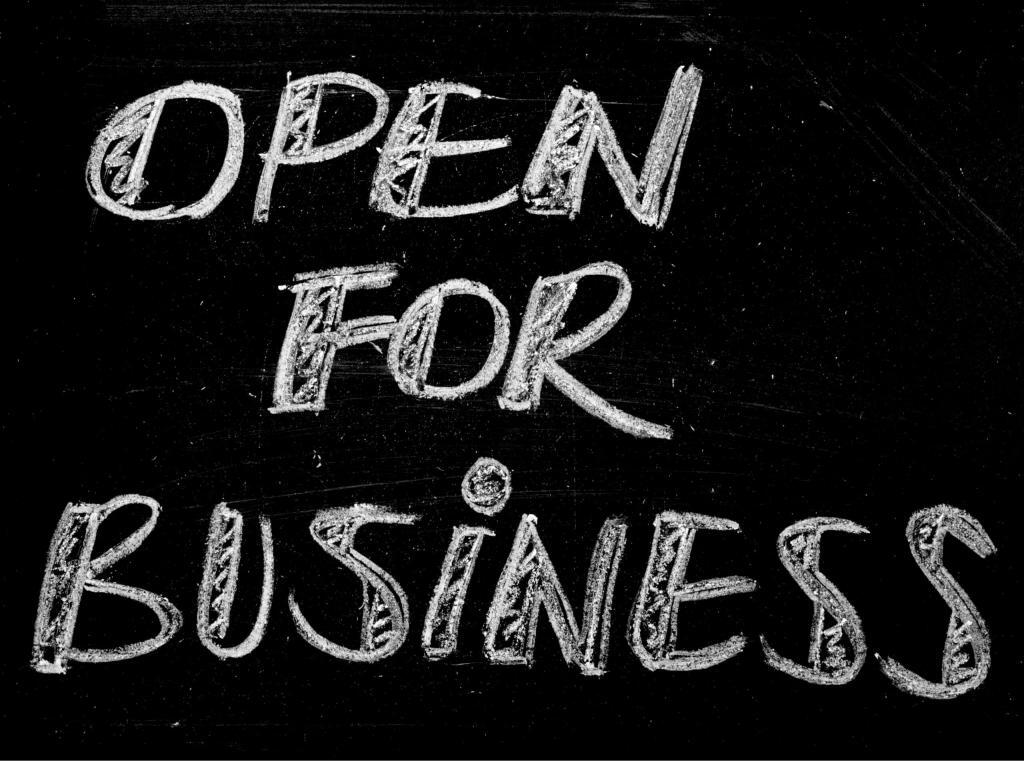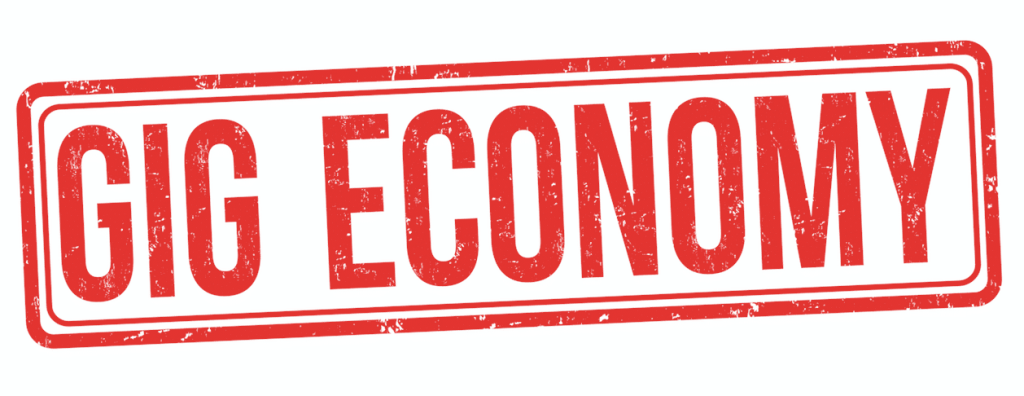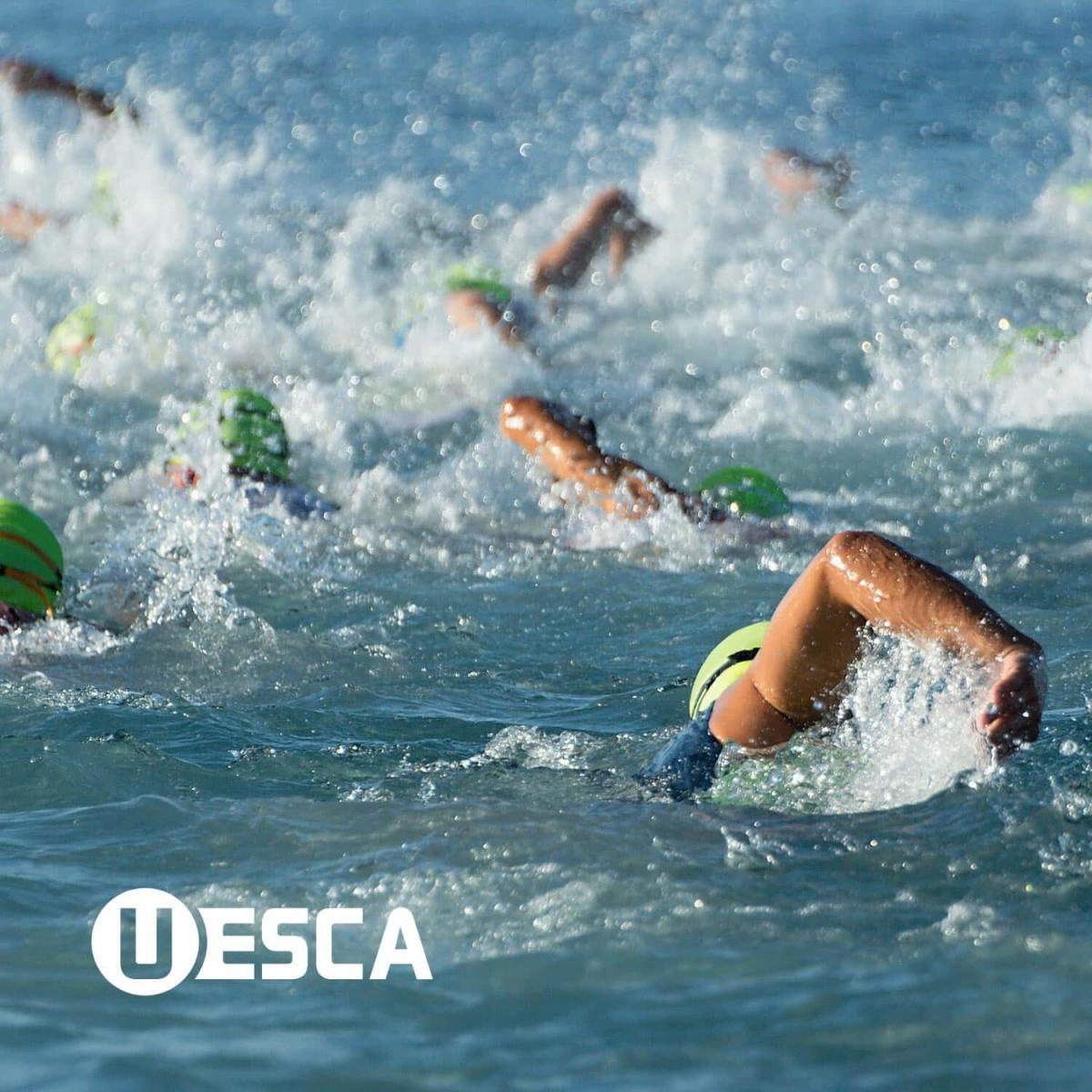
So you’ve run a bunch of races, love reading up on the latest training information and most importantly, you want to share your passion with others so that they can achieve their goals… awesome!
Now what?
There’s no doubt about it – starting a business is hard. Regardless of whether it’s online or brick and mortar, a lot goes into the formation and launch of a business. While this post is by no means an exhaustive list of the “do’s” and “do not’s” of starting a coaching business, my hope is that it sheds some light on critical areas to think about.
WHO DO YOU WANT TO COACH? THINK NICHE
Just as you wouldn’t want to have your GP do your shoulder surgery, you probably don’t want to have a coach that only works with 5-10K runners coaching you for an ultra marathon. Before you hang out your shingle, think about what population of runner you want to focus on. Maybe it’s beginners, maybe it’s marathoners, maybe it’s ultra marathoners.
The consumer is getting more specific with their ‘wants’ and it’s often no longer enough just be a ‘running coach.’ So determine what type of runner you want to work with and go from there. Lastly, from a marketing standpoint, it’s much more cost effective and efficient to target a niche versus the whole running population.
CAN YOU COMMIT?
A lot of new coaches have this fantasy that coaching is a one day a week commitment. Meaning, regardless of the number of clients you have, you earmark one day per week to send out all of your client programs and not worry about coaching the other six days. While a seemingly efficient model at first glance, this is not reality and I will add that if this is your reality, you need to rethink your coaching practice model.
While I understand that coaches often have multiple tiers of coaching involvement from extremely basic to unlimited coach contact, you need to understand that the coaching process requires more than one day per week. Checking in with clients, replying to existing and new client inquiries, modifying programs based on client feedback, marketing, continuing education… the list goes on. If you don’t want to, or do not have the time to do these things throughout a week, coaching is likely not the right choice for you at this time.
TYPE OF COACHING
Deciding if you will be focusing your coaching practice virtually or in-person will have a large impact on how you market your business. Additionally, if you plan to have an in-person model, will you be working out of a gym? Doing one-on-one outdoor sessions? Perhaps you plan on starting up a run club. Or perhaps you plan on doing both online and in-person coaching.
YOUR PASSION IS NOW YOUR JOB
I remember when I got my first job at a gym, I was so excited because I got to spend all day at a place that I loved.
That feeling lasted about a week
What I didn’t account for was that my passion was now my job and while I still loved fitness, it had a very different feeling to it. Instead of going to the gym to get a workout, de-stress and relax, I was clocking in to go to work.
While some people can balance these two worlds just fine, it was a struggle that I always had.
So just be aware that your relationship with the sport that you coach may change as you get into coaching and finding ways to separate your own running from your coaching practice is important.
ASSESS STRENGTHS AND WEAKNESSES
As noted above, it’s recommended to specialize your coaching practice. This isn’t just for marketing purposes either. As a coach, or any professional, you’re going to have your strengths and weaknesses, as well as areas that you’re more passionate about than others. It is important to do an honest self-assessment to figure these things out prior to starting your coaching practice, as this information will help shape the formation and direction of your business.
In respect to areas of weakness, perhaps due to your specialized coaching model, you simply don’t work with clients in those areas (ex: running mechanics). Or perhaps you partner up with someone who does specialize in your weak areas. Lastly, just like physical training, it’s never the wrong approach to learn as much as you can about areas that you perceive as weaknesses.

BE RESPONSIVE
I don’t care how great your website looks, how many degrees and certifications you have or how in-depth your marketing plan is, if you don’t reply in a timely fashion to prospective and existing clients, your business will fail… period. If it takes you longer than 12 hours to reply to an email, coaching is not the right path for you (note: you should reply much faster than 12 hours!)
KEEPING IT LEGAL
“Stay in your lane” – From a legal standpoint, this pertains to what you can and more importantly, what you cannot do as a coach. From a non-legal standpoint, this pertains to what you’re good at and experienced at, versus areas that are outside your scope of knowledge or comfort level.
Let’s discuss the legal aspect and instead of talking about what you can do, let’s narrow it down in respect to what you cannot do. Keep in mind that often times the line between what you can and cannot do is very fine and thus, is quite a grey area. As such, from a legal point of view, it’s smart to be as conservative as possible. Essentially when it comes to injury and supplements… and even dietary choices, you can inform but not prescribe. Here’s the ‘Cannot Do’ list:
- Hands-on body work (ex: massage)
- Diagnose/treat an injury or illness
- Prescribe or recommend medications (even OTC meds such as Advil)
- Prescribe supplements
- While this is not illegal per se, it is best to steer clear of this area
Insurance
It is strongly advised to get a liability insurance policy that covers you and any specific work that you do. You must be very careful to make sure that the policy covers your exact training areas. For example, you might get a policy that covers indoor cycling (i.e., spin classes), but not outdoor cycling. It is recommended to get a policy of 1M per occurrence. The likely cost range for a 1M policy is between $200-400/annually.
If you perform any coaching at a facility, they may ask to be added to your policy as ‘Additional Insured.’ This typically does not cost any additional money.
Below are insurance providers for triathlon and running, respectively.
IDEA (Triathlon Insurance)
K & K (Road Running Insurance)
Waivers
Having your client fill out a health history questionnaire (HHQ), physical activity readiness questionnaire (PAR-Q) and liability waiver can help in the reduction of liability. It is strongly suggested to have a local attorney draft your liability waiver. In regard to the HHQ and PAR-Q forms, they exist to alert you to any possible health issues that might preclude an individual from participating in a sporting activity with or without a physician’s approval. The American College of Sports Medicine (ACSM) is considered the gold standard for these areas.
Scope of Practice and Scope of Knowledge
You must always practice within your scope of practice and scope of knowledge. In respect to scope of practice, you cannot perform massage on a client as this is outside your scope of practice unless you are also a licensed massage therapist.
While a running coach can ‘prescribe’ a strength program, if this is something that is outside of your scope of knowledge, you should not include this in your coaching practice or refer out to a personal trainer or strength coach.
Business Formation
Having your coaching practice set up as a limited liability corporation (LLC) or as an S or C corporation will create a separate legal entity for your business.
However, as I’m neither an attorney or business expert, it is strongly advised to consult an attorney that specializes in business formation.
Personal Conduct
Last but not least, your conduct plays a large role in keeping your coaching practice above board. Things such as asking your client for permission before you physically cue them via touch is important, as well as limiting your conversations to the coaching relationship.
While I understand that as a coaching relationship develops, it often turns friendly, this does not mean that you should use offensive language or offensive ‘jokes.’ Keep things professional at all times!
CERTIFICATION(S)
Yes, I run an endurance sports coaching certification company. No, I don’t think to be a great coach you need to be certified. There are plenty of ‘not so great’ certified coaches out there. However, I will say that information contained within a coaching certification will likely make you a more informed and well-rounded coach and purely from a marketing perspective, a coaching credential is likely never a bad thing. It shows that you take your coaching seriously enough that you went an extra step to formally further your education.
It is important to note that not all certifications are created equal and when deciding upon one, it is important to do your homework. For example, do you want one that is in-person or online-based? What does the content look like? Does it teach a particular method? What do I have to do to renew? Are there any prerequisites?
These are just some things to think about prior to registering for a coaching certification.
COACHING SOFTWARE
There are several options out there in regard to coaching software, with TrainingPeaks and Final Surge being two of the more popular ones. Whether or not you choose to use a software program or you go with a simple option such as Excel or Google Docs, it’s wise to look at all of the potential offerings to see what would work best with your business.
MANAGE OTHER COACHES?
While sort of a ‘Step 2’ sort of thing and as such, usually a development that occurs once you’ve reached your own personal threshold of clients, operating a coaching practice where you oversee other coaches can be a viable option. This type of coaching practice also comes with a new set of challenges as you’re managing not just clients, but other coaches as well and to some degree, their clients as well if and when they have questions or issues.
PRICING

Ahh… the million dollar question. What price should you charge for your services? As there are literally hundreds of books on this topic, I’m likely not going to hit on all of the variables but here are some key areas to think about:
- Online or In-Person: If in-person, the local demographics will influence your pricing. For example, you can charge much more in NYC than you can in Ashtabula, OH.
- Competition: What is the range of price that your closest competitors are charging?
- Services: What do you offer? Simply put, the more services you offer and the greater the access to you, the more you should likely charge.
- Exclusivity: To a large degree, the price you set influences how many potential clients you’ll have. For example, I don’t care how great of a coach you are, if you charge $900/month, I’m not going to hire you. Conversely, if you only charge $5 month for you coaching, my first thought would be, “Why so low?” While it’s fine to keep your coaching prices low to make your services accessible to as many people as possible, just be sure to not devalue yourself or price your coaching so low that people are wondering why.
WEBSITE
It’s important to understand that the look of your website directly relates to how potential clients view you and your coaching business. Therefore, the more professional your website looks, the more professional you will be viewed by prospective clients.
Assuming you have a website, it is your virtual storefront and as such, it should be inviting, and as professional as possible. Your services should be clear without the need for a user to click around endlessly. It also goes without saying that the website has to work – especially if you have an e-commerce aspect to it where clients can purchase coaching. While you might not have the revenue of Amazon.com, it doesn’t mean that your website can’t look just as nice!
The good news is that you don’t need to hire an expensive web developer. The quality of website builders and templates are getting better and better with each passing day and most importantly, a lot of these builders are easy to administer by users that have no website technical experience.
When designing a website, think less about what you offer (yes, you still need this information) and more about what a prospective client is looking for. Areas to think about are:
- Coaching specific education
- Coaching philosophy
- Testimonials
- Sport(s)/distance(s) focused on
- Price
- What does a client get?
- Coaching experience
From both a convenience and budget standpoint, it is advised to have a website that you can do most of the updates to. WordPress.org (not WordPress.com) sites are some of the most popular due to their flexibility and the number of themes/templates that can be used. Website builders that are a bit more plug and play are Wix and Squarespace.
FREELANCERS AND RESOURCES

As we’re in the year 2019, the gig economy has never been as strong as it is now. There are near unlimited resources to assist you in developing your business. Here are some of the resources that I’ve used when developing UESCA.
- Upwork-Hire freelancers – we used it to source a web developer
- Fiverr-Hire freelancers – we used it for logo design, voiceover work, animations, infographics and excel database creation
- Clarity-Book a call with most any expert and pay by the minute
- Copycall-You get your own business phone number with voicemail capability
- Zen Business-Free set up of business formations
- Trademark Engine-Easy set up of the trademark application process
- Vimeo-Video hosting
- Drip-Email management
- Stripe/PayPal-Online payment processing
- Dropbox-Great for sending/storing large files
- Siteground-Website hosting
MARKETING

As there are endless ways to market you business, however these are some of the more popular methods:
- Word of mouth
- Network via allied health professionals (ex: physical therapists, nutritionists)
- Presentations at local sport shops such as running and triathlon stores
- Expos at local races (if in a relatively large market)
- Paid and unpaid social media
- Podcasts
- Commenting in online groups/forums
- Referral incentives for existing clients
- Write articles online for yourself (blog) and others
- Search engine optimization to increase your search result rank – especially in Google
- Coach local running groups and lead group runs
- Partner with local fitness facilities to teach running workshops
We interviewed one of our most successful coaches to learn what makes her business so successful – check it out here!
In regard to social media, think about what platform your potential clients most likely use, as well as what the best medium would be. For example, if you want to target runners in the 20 year old age group, Instagram is likely the right choice whereas if you’re targeting the 40-50 year old demographic, Facebook would probably be a better option.
Assuming you’re a single operator, it’s not possible execute a well run marketing campaign from a content perspective across all social media channels. While it’s fine to be on more than one channel, pick two that you will primarily focus on. It’s much better (and more effective) to do one or two channels really well, than five to six that are just mediocre to poor.
DON’T MAKE PROMISES YOU CAN’T KEEP
Results Guaranteed!! Really? No matter how great a coach you are (or think you are), you CANNOT guarantee results – period. Additionally, making promises based around one’s pace, time, race place or physical condition are also a big no no. Here are some examples of what NOT to promise:
- You’ll qualify for Boston
- You’ll drop 5 minutes from your current PR
- You’ll get in the top 5 of your age group
- I’ll get you to lose 10 lbs
Because trust me, when your client isn’t losing weight or is getting slower instead of faster.. it leads to some stressful conversations!
STAY UP TO DATE
No matter how much you know about coaching, there is always more to learn. Whether it be about business, injury prevention or performance enhancement, there is always new information coming out to stay on top of. As a professional coach, if you’re not constantly learning, you’re regressing.
PROGRAMMING
The format, delivery, content and structure of programs will differ between coaches. However, the one thing that should not differ is that each and every element in a client’s program must be there for a reason.
If you can’t explain to a client why XYZ workout or exercise is in their program, it has no place in the program. While it’s fine to make educated guesses in respect to programming, inserting something into a training program because it ‘looks cool,’ you just read about it in a running magazine, or because it’s easier to copy and paste from last weeks program is not correct.
CANCELLATION POLICY

This pertains mostly to in-person sessions and it is always an interesting topic. While not all coaches have cancellation policies, it’s been my experience that those that do, often make exceptions. As someone who has years of personal training and coaching experience, I’m quite familiar with the quandary of the cancellation policy. Meaning, enforce it and you’re the hard ass and bad guy – make exceptions for people and you’re a push over and will likely be taken advantage of. I get it.
For starters, let me just say that if you coach in-person, you need a cancellation policy. The exact time frame for the cancellation policy is up to you. If you don’t have one and moreover, if you don’t enforce it, your coaching business will hemorrhage both money and your time.
As noted earlier, I get it – especially in cases where your client is sick, has unexpected family/business emergencies or transportation issues.
So here is how I dealt with it, which turned out to be quite effective. Prior to starting, have the client sign off on the cancellation policy so that there can be no disputing it. In respect to the policy itself, I like to have a conversation with prospective clients and it is hard to say no to, as it is a two-way street. Here it is:
“Hi Bob, my cancellation policy is 12 hours notice to avoid being charged for the session. However, this policy works both ways so if for some reason, I get sick, my car breaks down or I have some other emergency that requires me to miss our session, I owe you a session or will refund you the money for the session. This way it’s completely fair for both of us… sound good?”
Notice, that I gave specific examples as to why I would have to potentially cancel, as they represent the most common reasons and also the most common cancellation types that clients often feel they should not have to pay for.
Now, the potential client can of course still take issue with this but if they do, consider it a blessing as they would likely cause issues down the road in respect to late cancellations.
MENTOR
Whether or not you have an actual mentor or a group of other more experienced coaches to ask questions of, it’s important to have a resource or resources that you trust. For example, UESCA coaches can join our closed UESCA Coaches Facebook group in which they can ask questions of our other coaches. Our coaches have found this to be one of the best benefits of the UESCA certification as they have immediate access to hundreds of other coaches.
GO ABOVE AND BEYOND

Want to stand out and as result acquire and retain more clients than the next coach? Go above and beyond what your clients expect of you. Truly caring for your clients is really the key metric for coaching success as this will drive your behavior in respect to interacting with them.
Sadly, so much of customer service these days is average to subpar – so much so that many of us almost expect this level of service. As such, it doesn’t take much to wow a client. That said, it’s shocking how many coaches don’t go above and beyond, especially since it takes little to no effort.
You’re not in the coaching business, you’re in the customer service business!
While this list could go on forever, here is a list of a few things that you can do that don’t take much effort, but will be appreciated by your clients:
- Call/email to check in (especially after a race or hard workout) to see how they’re doing outside for your normally scheduled call times.
- If your client is fundraising for a charity that is tied to a race they are doing, donate.
- Send a written note of thanks for being your client.
- If you read an article that you think your client might be interested in, send it to them.
- If your client’s race is near you and you have time, surprise them by showing up and cheering them on!
- If you know your client’s birthday, send them a small gift
While these things should be done from the standpoint of being a great coach, you’ll also find that they represent the most inexpensive form of client retention and acquisition due to likely referrals.
WORK FOR AN ORGANIZATION
Not all coaches work for themselves. Working for a fitness or coaching organization has many benefits – including but not limited to the following:
- Established name and credibility
- Typically easier to get clients than going it alone
- Potential for benefits such as health benefits, 401K, salary, etc…
- In-house training
- Work alongside other coaches
- Minimal start up costs as opposed to hanging out your own shingle
That said, a major drawback is that you don’t get to keep all of the revenue. So if you decide to work for a company, it’s important to weigh all of the positives and negatives before reaching a decision.
IMPOSTER SYNDROME
It is totally normal to not feel ready to hit the ‘go’ button on your coaching business. In fact, to some degree, it would be abnormal not to feel this way. Based on our coaches feedback, the primary reason for feeling this way is that they don’t feel that they know enough and therefore are not qualified to coach people. This is generically referred to as, “Imposter Syndrome.”
However, what I tell our coaches is this…
- They spent a lot of time studying and passing our comprehensive running coach certification
- They ask questions within our coaches group regarding areas they are unsure about
- They have a lot of personal sport-specific experience
- They continue to learn about the sport and the most recent findings
Due to this, I let them know that first and foremost, they are ready… and secondly, even though there will be areas that they are unsure about or don’t know, they know a lot more than the person or persons they will be coaching.
It is important to coach at the level of your knowledge and experience. For example, while a new coach might be able to help an elite athlete in some areas, the specifics of coaching an elite are different than coaching a novice. It is not a function of one being ‘harder’ to coach than another, as they both require a certain knowledge and skill base. However, if they don’t have experience coaching an elite athlete, it’s likely that they won’t be able to coach them as effectively as someone who works with this type of athlete on a regular basis.
COMPLIMENTARY CLIENTS (aka GUINEA PIGS)

To some degree, this goes hand in hand with Imposter Syndrome. For new coaches that don’t feel ready to dive in with both feet, working with clients pro bono is a great way to get experience and build confidence. These clients may stay with you even after you start charging for your services. Additionally, they can provide you with valuable feedback, testimonials and also serve as a good referral source.
SUMMARY
So there you have it… our comprehensive guide to starting a coaching business. As I noted in the beginning, this is by no means a comprehensive guide but it should give you a good overall picture of what is required to get started, as well as helping you figure out what areas require a deeper dive on your end.
Wishing you all the best in your future coaching business!!
Learn more about our certifications and get $50 OFF the purchase price!
Download the UESCA Triathlon Course Overview/Syllabus
Download the UESCA Running Course Overview/Syllabus
Download the UESCA Ultrarunning Course Overview/Syllabus
Download the UESCA Cycling Course Overview/Syllabus
Download the UESCA Endurance Sports Nutrition Course Overview/Syllabus
To learn more about UESCA, please visit our website









Great info Rick
I just don’t feel that after coaching for 30 years that I need a certificate. I’ve been very blessed in my running career and coaching career! God Bless!
Steve